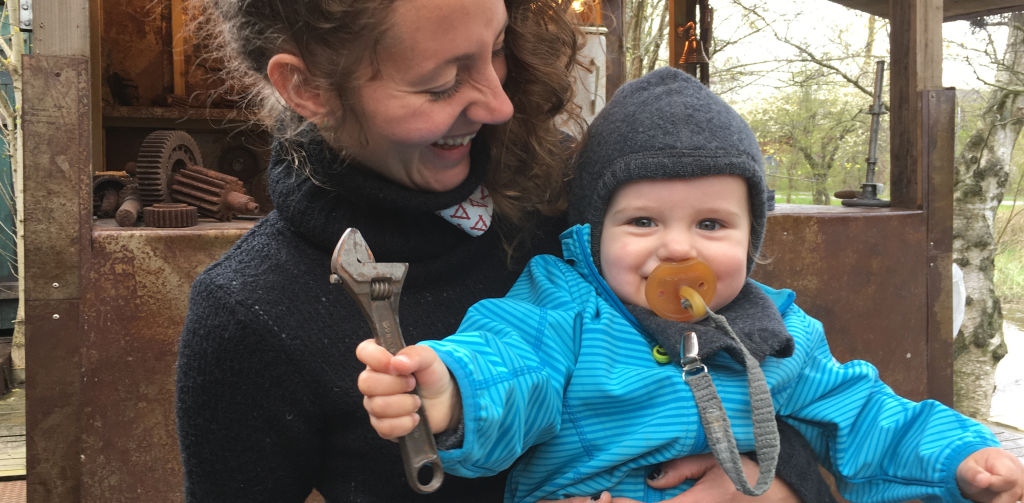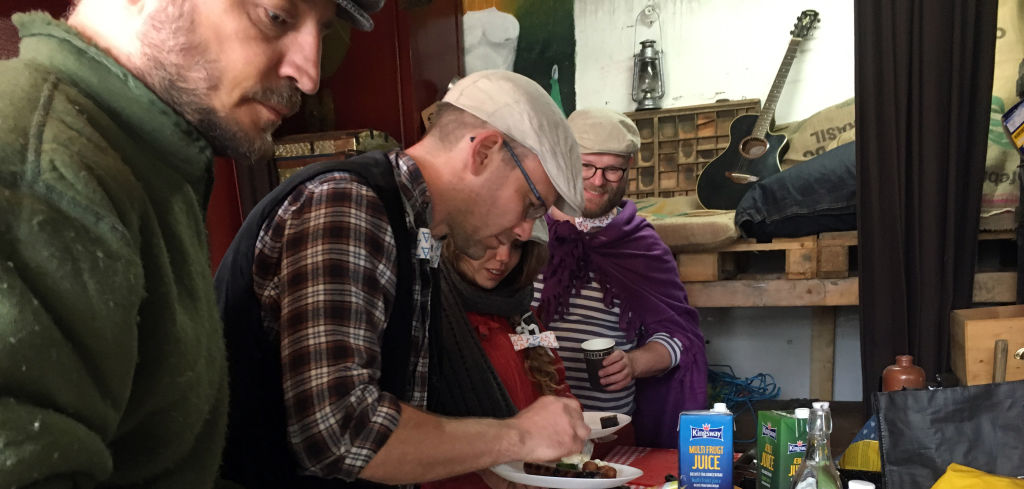Sympathy – walk in each other’s shoes
All of us are born with the ability to be sympathetic. A very little child gets affected, when another little child cries. It suffers with the sad child, gets sad too and wishes to give consolation for both to feel better again.
Showing sympathy can also be in exchange between different species, for instance a dog can feel sadness, when it´s human is sad and it wish to comfort for instance by licking a hand to make it´s human feel good again.
We are sympathetic, when we are able to share feelings with another being often in agreement of what the person does or stands for. Basically this ability requires also the ability to empathize – (look: Empathy).
Sympathy causes bright pleasure or discomfort within us, when we experience others’ happiness or misfortune – therefore it leads us to (unconsciously) consider actions that evokes joy by others as morally acceptable, and actions causing discomfort to others as morally reprehensible.

We value people we meet on whether they are sympathetic or the opposite. We cherish antipathy towards people we don’t trust or like, when they from our point of view appear unsympathetic or unpleasant.
Sometimes a sympathetic reaction can be very bad for us. If we feel sad or angry in grief after a divorce and a sympathetic friend doesn’t like to feel sadness or anger, he or she would try change the situation – make both of us get away from the unpleasant feelings. Or the friend would simply leave, if it feels unbearable.
This can feels like rejection, since we searched for understanding, someone to listen, accommodate and give consolation for us to stay the only place we could be: in grief with sadness and anger.

Many people who get sick and feel sad often experience that others in sympathy escape, we are abandoned and left alone with our suffering.
In empathy we understand the feelings by another, in a partly conscious distance as a complex interaction between feeling and thinking. In sympathy exists no distance, we feel what the other one feel – grief, joy, happiness, anger or fear etc.
Or the sympathetic friend tries to glorify our pain: “Yes he found another woman, but at least you got the house”. The sympathetic friend might even think (not say): “I am happy this is not me, because it feels awfully. I don’t want to feel this!”
When people are very close, almost living in symbioses as many do in a marriage, the partners can feel the same, share all feelings and emotions. We cannot tell who is feeling what. Like a mother is suffering when her child is suffering.
This can effect that the emotions grow stronger. If the feeling is unpleasant, it might feels like no one here is able to help us or able to see our situation from another view. Instead we seem to drown in emotions – together. We walk in each other’s shoes, some might say.

In sympathy we often try to make situations look or be better, than they are, because we cannot cope feeling the feelings within others. But glorifying does not make anyone feel better, instead we feel having no right to the feelings, we actually have.
An empathic behaviour is better, for instance saying: “I am glad you told me this, I understand that this must be very hard on you. Come here baby – let me give you a hug”.
What we need in this situation is rarely sympathy, but to feel emotional connected to another human with warmth. We need somebody who stays calm, accommodating and empathetic.
Sympathy is unconscious. We cannot help it. Working with our own inner self, getting more access to what has caused our own habits of reacting, and gaining more consciousness about our own self as a whole, the more we can grow our ability to change a sympathetic behaviour to an empathic behaviour.
But if we are not grounded in our own self, float around in constant spinning thoughts and feelings, then we are also entitled to follow along other people’s flow of feelings.

If a man has a very low self-esteem, he will typically float with other people’s feelings and opinions, first with one, then another and then another and so forth. He is constantly moving away from himself, also this way no longer able to stand strong in conflicts.
This can cause depression – when he is alone, he does not have the sense “I am me”. In selfpity he will search for others also to feel pity for him. Maybe he will even blame others or life for his suffering. He only feel alive, when he “borrow” other people’s feelings.
But the last thing he needs is someone else to drown down into his selfpity with sympathy. He needs an empathic compassionate person, who can hug him and encourage him to take responsibility to gain more self-esteem – by himself.
Praise him in his struggle to change. Give him back his power by for instance say: “I trust that you can do this! Little by little is fine”.

Sympathy is a bit in family with pity and worry – feeling sorry for someone, also for oneself. Some confuse this with care: I feel with him, this must be love. But it isn’t. Feeling sorry for someone can have a slight content of contempt and aversion. In sympathy we often don’t respect or accept the other when the feelings are unpleasant, even we could claim to love and care. In selfpity we also don’t respect our own self.
Empathy is in family with compassion, where we have a deep wish of helping the other one with mercy, accept, forgiveness and care. We are touched by the situation, but also able to partly stay distanced from feeling the exact same as the other one.
Family members are mostly woven into shared feelings in sympathy all the time. We are not dividable, but function as one being – with all the emotions of this organism, the family.
It does not mean that we don’t love and care for each other, of cause we do.
A lot. We wish each other to feel well and be happy.
But because we love and because we are dependently interconnected, it is a tough job working on to distance ourselves to an empathetic compassionate caring level as individuals. When we succeed, love between us can float with more fervour and purely.

Often when we share feelings in sympathy, it is a great pleasure for us. When the feelings are comfortable for us: joy, happiness, love, thrill, excitement etc.
Watching a funny movie together and laugh in joy of the same story is a great experience. One happy human can make everybody happy.
When we are in love, we mirror the pleasure of these delightful romantic moments for each other – the beautiful feeling grows, we experience this as wonderful magic of togetherness.
We open up to let this pleasure sympathetically float even more freely between us. Until one day one of the two feels bad.

All of us wish to feel connected a hearty way to other humans. This is a basic human need.
When we say about a person that he is sympathetic, we often mean that it is easy to be connected with him an open and kindly pleasant way. We feel a bonding, a “we” – whether the contact is digital or in real life.
The character of our communication is very important (look: Romance).
All of us wish to connect sympathetically with someone in serenity, power, happiness, joy, peace, tenderness and love.
When we have unpleasant feelings we prefer a lovingly compassionate empathetic contact with others. We have a deep need to be seen, understood and loved.

 Read more...
Read more...